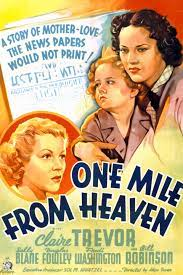Even at their sappiest, Claude Lelouch’s films are usually
more eccentrically ambitious and personal than his reputation often acknowledges; the 1969 Love is a Funny Thing is no exception. Henri (Jean-Paul
Belmondo) and Francoise (Annie Girardot) are both working on the same
American-shot movie, as composer and actress respectively; they hook up and take
off on an improvised road trip, with the film intriguingly eliding both the
details of the initial seduction and most of the key decision points
thereafter, concentrating instead on momentary experience and engagement. This
allows a quasi-pre-Herzogian cavalcade of American oddities, including a Western
shoot-out enactment (Lelouch thoughtfully lets the scene run long enough for
each participant to be acknowledged and to take a bow), the ability to walk
into a gun store and make a purchase using travelers cheques, and the all-round
kookiness of Las Vegas (where the food may be lousy, but at least there’s a
trapeze act to distract you from it, or failing that, Pat Boone with special
guests Sonny and Cher). The two return to Europe and to their spouses with the
idea of meeting up again later, but their connection was all too obviously dependent
on a particular set of circumstances, and the film ends in absence and separation
(the original title, Un homme qui me plait, better reflects that the story
belongs more to her than to him). It’s a shame that a viewer is most likely to
encounter the film in a dubbed English version which flattens the sense of
language and broader cultural differences (although the person who dubs
Girardot does so with some delicacy, reflecting the actress’s reticent presence),
but it’s still worthwhile viewing, with the bonus of a very young Farrah
Fawcett, cast in the early scenes in a miserable have-I-got-a-girl-for-you
role, at the mercy of Belmondo at his most offputtingly leering and predatory.




